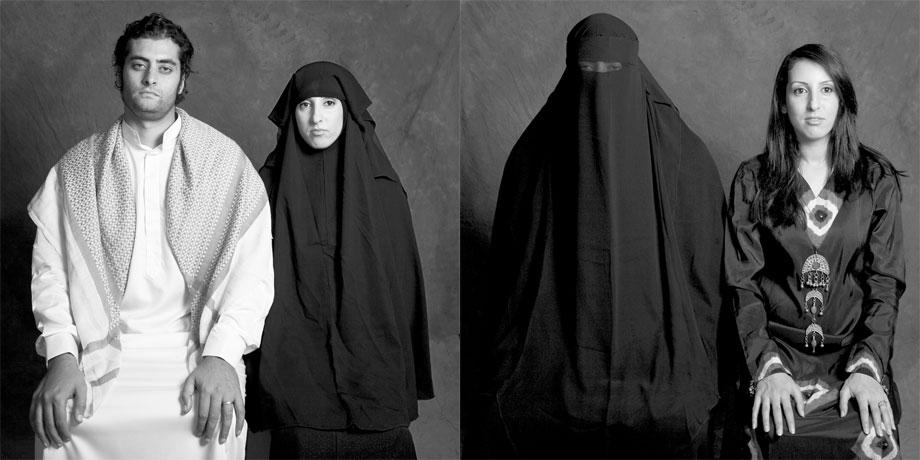Unveiling an Arab Woman’s Experience With a Headscarf
|
Posted
Thursday, Nov. 29, 2012, at 9:30 AM ET
Behold is Slate's brand-new photo blog. Like us on Facebook, and follow us on Twitter @beholdphotos and Tumblr. Learn what this space is all about here.

Boushra Almutawakel.
There are many things Yemeni photographer Boushra Almutawakel
likes about wearing a headscarf. She sees it as part of her culture
and, sometimes, as a protection in her ultraconservative country. But
there are also many aspects of the hijab Almutawakel doesn’t “care much
for.” She can’t hear well when she’s veiled; she dislikes not seeing
women’s mouths when they’re wearing the more conservative niqab, a veil
that covers everything but the eyes.
There isn’t just one way to look at the way women cover in the Arab
world, and that’s why Almutawakel decided to picture the veil from many
different angles. In her hijab series, she takes the viewer on a visual journey through the different nuances of what it means to be veiled.


The Hijab Series: What if ...
Boushra Almutawakel.



The Hijab Series: Mother, Daughter, and Doll.
Boushra Almutawakel.
Boushra Almutawakel.
“I want to be careful not to fuel the stereotypical, widespread
negative images most commonly portrayed about the hijab/veil in the
Western media. Especially the notion that most, or all women who wear
the hijab/veil, are weak, oppressed, ignorant, and backwards,”
Almutawakel explained. Her photographs question the place of gender in a
more subtle, often playful, way by challenging people’s expectations.
Yet Almutawakel’s way of pushing boundaries doesn’t amuse everyone.
“Some men—even some Western-educated men—could not find the humor in What If, ” Almutawakel said in an email. “Some of them asked me if I was supporting the idea that men wear the veil instead of women.”
Almutawakel’s latest project for the hijab series shows how men’s
traditional clothing can be similar to women’s in the Middle East. Her
pictures show a woman dressed in long, loose masculine outfits that
include a head covering.
By offering different ways of looking at the hijab, Almutawakel
conveys a bigger picture—a picture that is far from being just black and
white.

Ghutra.
Boushra Almutawakel.
Labels: culture, Discrimination, Human Relations, Sexism


0 Comments:
Post a Comment
<< Home